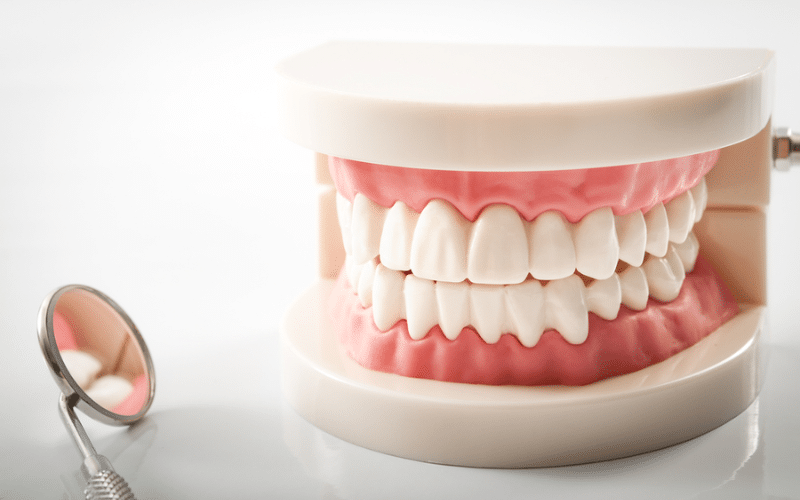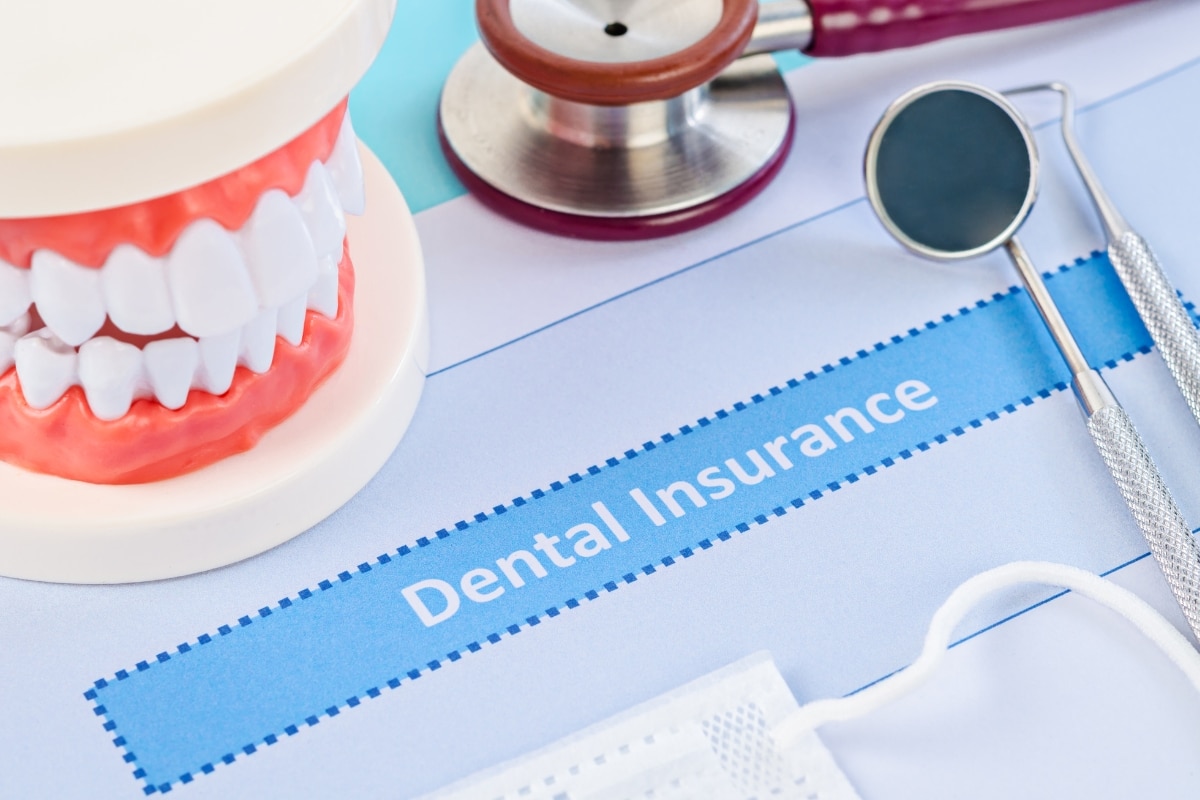
As we age, our oral health needs can change dramatically. For some individuals, dental issues may progress to a point where complete dentures are the best solution for restoring oral functionality and aesthetics.
While the decision to pursue dentures should always be discussed with dentists, certain health conditions can indicate a need for them.
Today’s blog will discuss the health issues that often make full dentures the right choice and how they can improve both quality of life & oral health.
When Health Challenges Lead To Dentures: Conditions That Make You a Candidate
1. Advanced Periodontal Disease
Periodontal disease, or gum disease, is one of the leading causes of tooth loss in adults. In its severe stages, this condition can cause significant damage to the gums, bones, and surrounding structures that support teeth, eventually leading to tooth loss.
The progressive nature of periodontal disease makes it difficult to reverse once it reaches an advanced stage. Signs that periodontal disease may make dentures necessary:
- Gum inflammation: Red, swollen, or bleeding gums that persist despite regular brushing and flossing.
- Bone loss: Periodontal disease can deteriorate the bone that supports teeth, making them loose and unstable.
- Multiple tooth loss: When several teeth are lost or significantly damaged, complete dentures may be the best solution for restoring function and appearance.
2. Severe Tooth Decay
Tooth decay is a common dental issue that, if left untreated, can become extensive and damage large portions of the teeth. Severe decay that affects numerous teeth may leave restoration options, such as fillings or crowns, insufficient or ineffective.
In cases where teeth are beyond repair, they can replace lost or damaged teeth and improve comfort and chewing ability.
Indications that tooth decay may lead to dentures:
- Pain or sensitivity: Chronic tooth pain or sensitivity that interferes with daily activities.
- Infections and abscesses: Frequent infections and abscesses are signs that tooth decay has reached the tooth roots or surrounding areas.
- Broken or crumbling teeth: If decay has weakened the teeth to the point of breaking, they may not be salvageable, making dentures a viable solution.
3. Bone Loss or Osteoporosis
Bone health and dental health are closely linked, and conditions like osteoporosis, which cause bones to become brittle, can significantly affect the jawbone’s integrity. When the jawbone deteriorates, it may not be able to support natural teeth, which can lead to instability and loss.
Complete dentures provide a stable alternative when bone loss has made natural teeth unsupportable.
Key factors to consider with bone loss:
- Reduced jawbone density: Osteoporosis and other bone diseases weaken the jawbone, making it difficult for teeth to stay anchored.
- Dentures with bone grafts: Some patients may require bone grafts before dentures to improve support.
4. Trauma or Injury
Accidents and injuries to the face or jaw can lead to severe damage or loss of teeth, making complete dentures a good restorative option. Trauma from car accidents, sports injuries, or falls can cause teeth to break, fracture, or be knocked out completely.
In such cases, dentures can restore the appearance and functionality of the mouth after significant trauma.
Types of injuries that may necessitate dentures:
- Facial fractures: Jaw or facial fractures may affect the positioning or viability of natural teeth.
- Multiple missing teeth due to trauma: If a significant number of teeth are lost due to an accident, dentures can replace them efficiently.
- Damage to surrounding tissues: Trauma that damages the gums or jawbone might make it challenging to retain natural teeth, making dentures a better alternative.
5. Severe Malnutrition or Eating Disorders

Oral health is often impacted by nutrition, and individuals with malnutrition or certain eating disorders may experience weakened teeth and gums. Chronic lack of nutrients like calcium and vitamin D can reduce the strength of both teeth and jawbone, leading to tooth decay, loss, or gum disease.
In advanced cases, these dentures may be necessary to restore functionality and appearance.
Signs that nutrition issues may lead to dentures:
- Severely weakened teeth: Teeth that are prone to breaking or crumbling may indicate malnutrition’s effects on oral health.
- Increased risk of decay and gum disease: Malnutrition can reduce immune response, making the mouth more vulnerable to decay and infection.
- Bone weakness: Lack of essential nutrients can lead to bone weakness and affect the jaw’s ability to support natural teeth.
6. Chronic Conditions Affecting Saliva Production
Saliva plays a critical role in protecting teeth and gums by neutralizing acids, washing away food particles, and preventing infection. Certain chronic conditions, such as Sjögren’s syndrome and diabetes, can lead to chronic dry mouth (xerostomia).
When saliva production is impaired, the risk of decay and gum disease increases, potentially leading to tooth loss and a need for dentures.
Factors to consider for dry mouth sufferers:
- Higher cavity risk: Without adequate saliva, teeth are more susceptible to decay and cavities.
- Increased gum problems: Dry mouth can contribute to gum irritation, which may exacerbate gum disease.
- Dentures as an alternative: When natural teeth are lost due to extensive decay from dry mouth, complete dentures may offer a comfortable solution.
Complete dentures can be a life-changing solution for individuals experiencing extensive tooth loss due to various health conditions. From severe gum disease and decay to trauma and bone loss, a wide range of dental issues can make dentures a necessity.
If you’re among those who are struggling with any of these conditions, consulting our dentist will help you explore denture options that fit your specific needs. Modern denture technology offers numerous options to suit individual conditions and preferences, allowing for improved oral health, functionality, and confidence in your smile.





